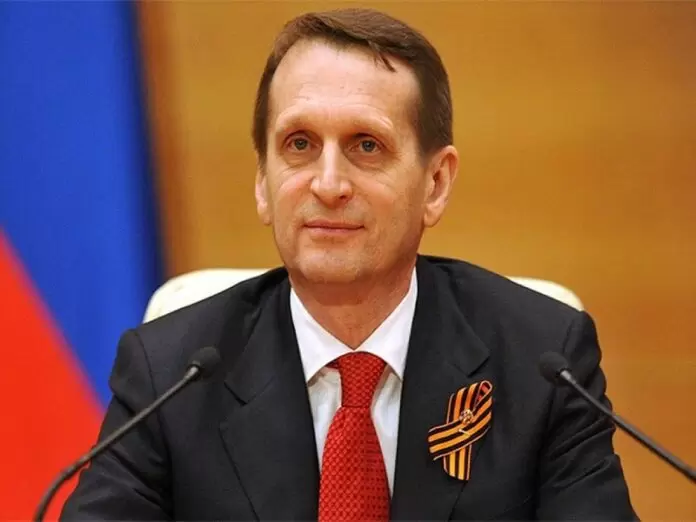Chief of Russia’s Foreign Intelligence Service (SVR) Sergey Naryshkin gave a brief interview to the National Defense magazine in which he explained how he sees the world. In his eyes, the West has been weakened even though the dollar remains the universal currency. He also said that the Global South is wary of receiving technology and investment from the West because they don’t want to pay for it with their sovereignty. They’re also skeptical of the West’s outreaches and promises of global reform.
The historic rise of the Eurasian macro-region parallels the West’s decline. Multipolar processes are more active there than anywhere else, hence why it’s targeted by the West’s divide-and-rule schemes. These will only serve to facilitate the creation of a Eurasian security architecture that can ensure stability on the supercontinent. The greatest threat right now is NATO’s proxy war on Russia through Ukraine, but Russia’s updated nuclear doctrine makes it impossible to strategically defeat Russia.
The professional degradation of the Western bureaucratic class is responsible for why the West thought that it could strategically defeat Russia through Ukraine in the first place. These people are obsessed with retaining their sides’ declining hegemony at the expense of their people’s living standards. “Only ignoramuses or scoundrels are capable of participating in such a cynical political spectacle”, Naryshkin added, scoffing at how they’ve misled people into believing that supporting Ukraine is in their interests.
The joint article that his American and British counterparts published in the Financial Times in September “is also evidence of something amiss in modern Western civilization” since they wouldn’t seek to justify their organizations’ activities in the public sphere if everything was supposedly going according to plan. The rest of his remarks touched on aspects of his institution’s history, work, and advice for future applicants. Everything that was shared above will now be analyzed in the larger context.
What can be seen is that SVR is convinced that certain global trends are irreversible, namely the West’s decline and the rise of the Eurasian macro-region, but neither has yet to culminate so there could still be some surprises along the way. Therein lies the importance of its work in obtaining privileged information about these trends, incorporating this into their analyses, and informing policymakers about the most effective way to advance Russia’s national interests in these circumstances.
His words about the creation of a Eurasian security architecture are admittedly ambitious, but their significance is that this is the long-term goal that Russia is officially aiming for, which will require plenty of work before any tangible progress is achieved. For instance, there’s still a lot of distrust between China and India in spite of their nascent rapprochement, and that’s not even to mention the distrust between India and Pakistan or even nowadays India and Bangladesh after the latter’s US-backed regime change.
There’s also the unresolved Chinese-Vietnamese maritime dispute in the South China Sea as well as lingering suspicions that Iran and Saudi Arabia have of one another in spite of spring 2023’s rapprochement. These and other issues are herculean challenges on their own, let alone when grouped altogether, but Russia has excellent relations with both countries in each pair of disputes so it’s well-positioned to either mediate or share suggestions (whether solicited or unsolicited) for resolving them.
Whereas the US wants to divide-and-rule Eurasia in order to decelerate the decline of its unipolar hegemony, Russia wants to bring everyone together in order to accelerate multipolar processes. To this end, passing along intelligence about America’s aforesaid plans to those countries that are the targets of such plots can go a long way towards foiling them and then bolstering the trust required for Russia to help politically resolve their regional disputes. This is the invaluable benefit of partnering with Russia.
Looking forward, Russia is expected continue playing an integral role in Eurasia’s gradual consolidation as a macro-regional actor in the emerging multipolar world order through its military means of defeating NATO in Ukraine and its clandestine ones as described above. No other country is playing anything similar to this role, though that’s not to say that they’re unimportant, it’s just that economic means can only do so much to accelerate these processes.
The closer that Russia coordinates its military-clandestine roles with the economic ones that China, India, and other top Global South states play, the faster that everything will unfold. The Russia-India-China (RIC) framework will therefore remain the most pivotal during this period, followed by BRICS and the SCO in equal measure, within which RIC is their core axis. If the Sino-Indo rapprochement succeeds, which Russia will encourage but won’t meddle in, then the world will radically change for the better.
